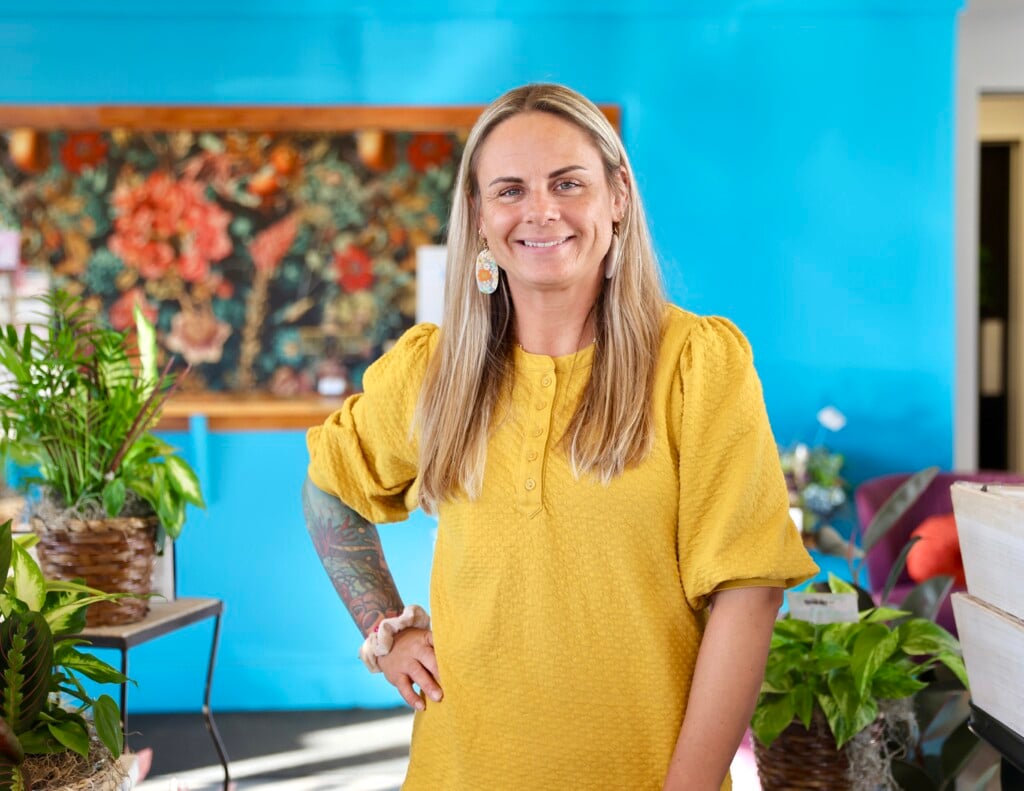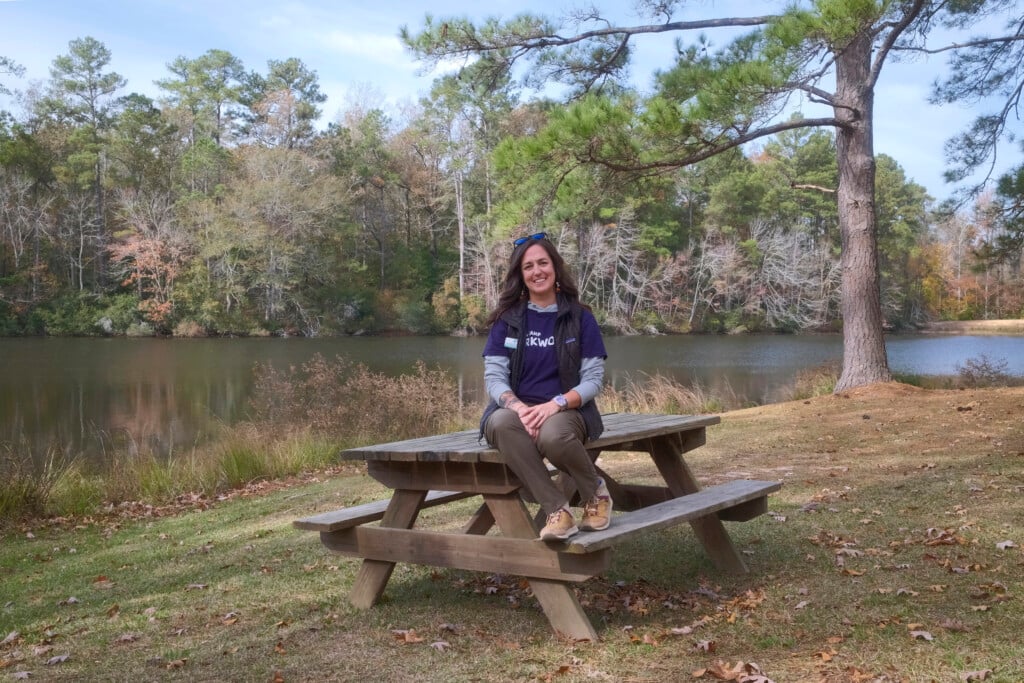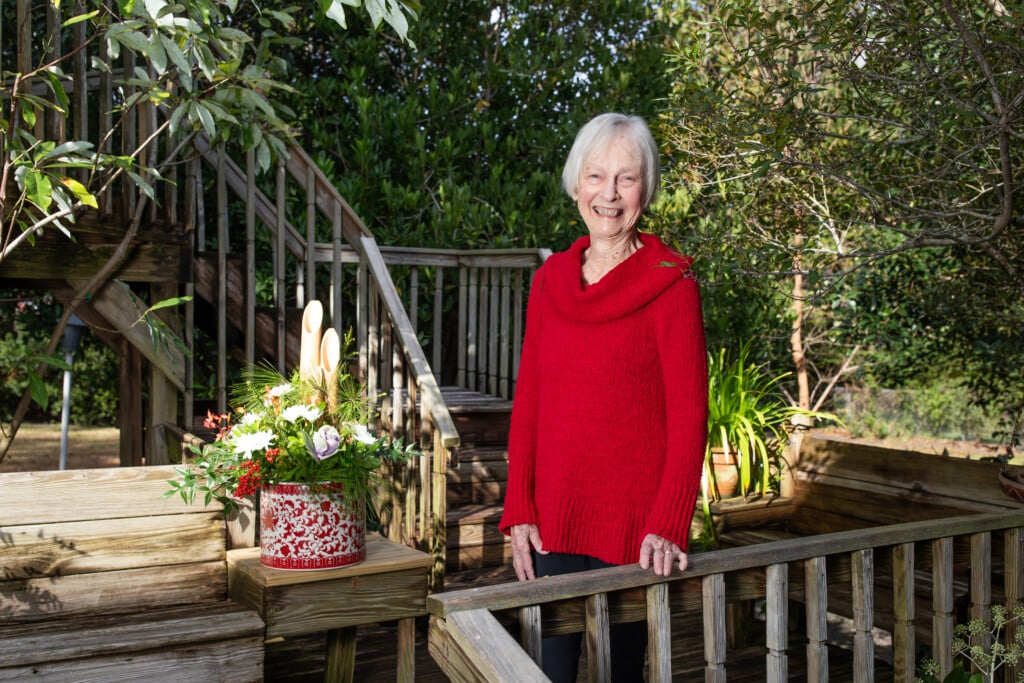Sea of Possibilities
Heather McWhorter’s ocean economy focus
In early September, the director of UNCW’s Center for Innovation and Entrepreneurship and her team were swimming waist-deep in the blue economy.
HEATHER MCWHORTER, who has led the university’s CIE since 2022, said September 5, “Right now, our life is the Ocean Innovation Conference and all the details associated with that.”
The conference, which, as of press time, was set for September 17, explores efforts to protect the ocean while sustainably boosting the economy and increasing innovation around the coast’s ecosystem.
McWhorter says she secured a sponsorship for this year’s conference that allows the CIE to offer the event virtually, “which is a big deal” because those who can’t attend the conference in person can still benefit from the event.
“Last year, we had people as far away as Australia wanting to participate virtually,” she says.
With the conference and other efforts, McWhorter continues the work of a blue economy initiative started by volunteers and her predecessor, Diane Durance.
Coordinating the conference and CIE’s blue economy efforts is just part of McWhorter’s duties.
“We’re hopping over here,” she says of CIE’s day-to-day atmosphere.
McWhorter, who brought a background in engineering and a stint as the head of the University of North Carolina Wilmington’s Small Business and Technology Development Center to her latest role, says one of her main tasks is to connect entrepreneurs to the area’s entrepreneurial ecosystem.
“This wave of entrepreneurship since the pandemic hasn’t died down,” McWhorter says. “Entrepreneurship continues to be at an all-time high.”
The CIE offers space for startups to rent, a coworking office, meeting rooms and event space. The center also provides programming, such as 1 Million Cups Wilmington, an educational and inspirational event for existing and would-be entrepreneurs held at 9 a.m. Wednesdays.
“We have rolled out a lot of purposeful programs to address the needs of entrepreneurs and gaps in programming in our region. Another example is the pre-accelerator program that we rolled out called Idea Test Lab, which we received funding from Wells Fargo to do,” McWhorter says. “We ran a cohort for women and then a cohort for blue tech and climate tech.”
McWhorter, who has a bachelor’s degree in chemical engineering and a master’s in energy and mineral engineering from Penn State University, says her engineering background has helped her form processes, jumpstart initiatives and understand the latest research.
To keep track of the ever-changing startup landscape, McWhorter says she taps into national thought leaders – for example, she participates in a monthly chat with other university economic development and entrepreneurial officials to share best practices.
“If we have a challenge, we delve into that,” McWhorter says.
This year, McWhorter attended the International Business Innovation Association conference in San Antonio, Texas, where she received accreditation for entrepreneurship center management.
“It was wonderful to meet everyone and learn from other communities what they’re doing, what we can bring back here and incorporate into what we’re doing,” McWhorter says.
As of September 5, UNCW’s CIE was one of four finalists in a University Economic Development Association awards competition, recognized specifically for the work the UNCW CIE has done in helping with programming and supporting the blue economy. That work has been “inspiring the community to take action and create change in a meaningful way for them, and particularly, of course, through entrepreneurship,” McWhorter says.
Specific program examples include a free, self-paced online course for people who want to become oyster growers and make a living at it. The program, Propel, “offers participants in the shellfish mariculture industry a business incubator curriculum and process to assist growers through the stages of business launch and growth,” according to UNCW’s website.
Earlier this year, the CIE hosted EcoInnovate Weekend for startups and incorporated reverse pitches – where a problem is presented to a group, and they work on a way to solve it.
To promote the work of the CIE universitywide, the center recently held a scavenger hunt, complete with stickers and treasure maps, for new UNCW students to learn ways they can participate in entrepreneurship efforts at the school.
Continuing to encourage student entrepreneurship is one of McWhorter’s goals for the CIE’s future.
“We have this captive audience of 18,000 students, and we know that 65% to 80% of this generation wants to start a business someday,” she says. “I’d be doing a disservice to the world if I wasn’t out there doing scavenger hunts and having fun with them, to just expose them to meeting entrepreneurs, to having fun in this space, to connecting them to 1 Million Cups.”
McWhorter outlined another goal.
“With our love for the ocean, I really believe that we have the potential to be a blue innovation hub and to see a lot more blue tech startups working on problems and opportunities associated with living at the coast, with sustainable aquaculture and with climate,” she says. “It’s starting to happen already, and I want to see more of that because I think a lot of the news that you see related to those topics are downers, and it doesn’t have to be like that. You can be part of a solution.”
To view more of photographer Malcom Little’s work, go to malcolmlittlephotography.com.
Want more WILMA? Click here to sign up for our WILMA newsletters and announcements.




